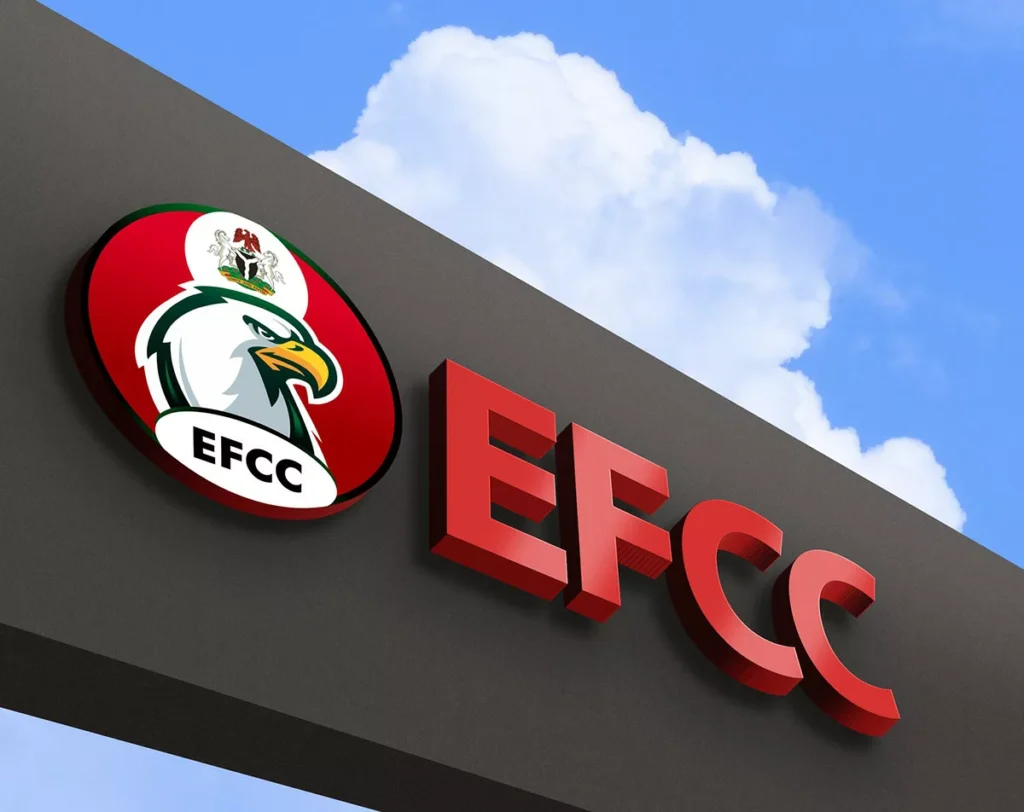The Economic and Financial Crimes Commission (EFCC): The Guardians of Nigeria’s Economy
Corruption has long been a thorn in Nigeria’s side, obstructing economic growth and undermining public trust in institutions. As Africa’s most populous nation and one of its largest economies, Nigeria has immense potential, but that potential has been continually hindered by rampant financial crimes. To combat this pervasive issue, Nigeria established the Economic and Financial Crimes Commission (EFCC) in 2003. Since its inception, the EFCC has played a pivotal role in Nigeria’s fight against financial crimes, positioning itself as a central player in the country’s war against corruption.
This article delves into the history, mandate, challenges, controversies, and impact of the EFCC in Nigeria, examining its role in addressing fraud, money laundering, and corruption, while also exploring how the agency has evolved with the country’s social and economic landscape.
The Origins of the EFCC
The establishment of the EFCC in 2003 was a response to international and domestic pressure to address Nigeria’s widespread financial crimes. Nigeria’s reputation had been severely damaged by corruption scandals, particularly in the late 20th century when it became infamous for fraud schemes such as the notorious “419 scams” (advance-fee fraud).
Under the administration of President Olusegun Obasanjo, there was a political will to create a dedicated agency to tackle financial crimes. The Nigerian government introduced the EFCC through an act of the National Assembly to investigate and prosecute individuals and organizations involved in economic crimes, particularly financial fraud, embezzlement, money laundering, and other forms of corruption.
The agency’s first chairman, Nuhu Ribadu, was appointed in 2003. Ribadu was a former police officer known for his boldness and tenacity, and he is often credited with building the EFCC into a formidable anti-corruption institution. The agency began to gain traction with high-profile investigations, focusing on both public officials and private individuals involved in economic crimes.
Mandate and Powers of the EFCC
The EFCC’s mandate extends to a wide range of financial crimes. Its primary responsibilities include:
- Investigating and prosecuting financial crimes: This includes fraud, money laundering, embezzlement, tax evasion, and other forms of corruption. The EFCC has the power to arrest suspects, freeze bank accounts, seize assets, and collaborate with international organizations to trace and recover stolen funds.
- Collaborating with domestic and international agencies: The EFCC works in partnership with other government agencies such as the Nigerian Police Force, the Central Bank of Nigeria (CBN), and the Independent Corrupt Practices and Other Related Offenses Commission (ICPC). On the international level, it collaborates with the Financial Action Task Force (FATF), INTERPOL, and foreign governments to address transnational financial crimes.
- Preventive actions: The EFCC also plays a role in preventing financial crimes by conducting public awareness campaigns, educating the public about the dangers and consequences of financial crimes, and advocating for stronger financial regulatory frameworks.
- Asset recovery: A key component of the EFCC’s work is tracing and recovering stolen public assets. This includes working to repatriate funds stolen by corrupt officials who have laundered money abroad.
Milestones and Achievements
The EFCC has been instrumental in investigating and prosecuting various high-profile cases that have shaped the public’s perception of Nigeria’s fight against corruption. Some of the notable milestones include:
1. The Prosecution of Former Governors
Several former state governors have faced EFCC charges for misappropriating public funds. Prominent cases include that of former Delta State governor James Ibori, who was convicted of money laundering in the United Kingdom. This case highlighted the EFCC’s ability to collaborate internationally and bring influential figures to justice.
2. The Halliburton Bribery Scandal
In one of the largest international bribery cases, officials from the multinational corporation Halliburton were implicated in paying bribes to Nigerian government officials. The EFCC played a crucial role in investigating the scandal, which involved millions of dollars in kickbacks for contracts related to Nigeria’s liquefied natural gas projects. Several individuals and corporations were prosecuted and fined as a result.
3. The Fight Against Cybercrime
As Nigeria became a hotbed for cybercrime, particularly advance-fee fraud schemes, the EFCC spearheaded efforts to clamp down on internet fraudsters, colloquially known as “Yahoo Boys.” Through a series of sting operations and crackdowns, the EFCC arrested numerous individuals involved in scamming people around the world.
4. High-Profile Arrests and Prosecutions
Over the years, the EFCC has gone after prominent politicians, businesspeople, and military officials. The agency’s efforts to prosecute Senate President Bukola Saraki, former Petroleum Minister Diezani Alison-Madueke, and the trial of ex-National Security Adviser Sambo Dasuki for the alleged misappropriation of $2.1 billion in arms funds, demonstrate its pursuit of accountability at the highest levels.
5. Asset Recovery
One of the EFCC’s significant successes is its ability to recover assets looted by corrupt officials. The commission has recovered billions of naira in stolen funds, assets, and properties, both domestically and internationally. These efforts underscore the EFCC’s role in returning stolen wealth to the Nigerian economy.
EFCC’s Fight Against Money Laundering
One of the critical areas in which the EFCC has made significant strides is combating money laundering. Nigeria’s economy has long suffered from illicit financial outflows, which are often linked to corrupt public officials and businesses transferring money illegally to foreign accounts. These activities drain the country of resources needed for development and create distortions in the financial system.
The EFCC’s efforts to curb money laundering involve close collaboration with the Central Bank of Nigeria (CBN), the Nigerian Financial Intelligence Unit (NFIU), and international bodies such as the FATF and the Egmont Group of Financial Intelligence Units. The commission monitors suspicious transactions, traces illicit funds, and ensures compliance with anti-money laundering laws. A key strategy has been working to pass legislation that tightens loopholes in financial regulations.
Challenges Facing the EFCC
Despite its many achievements, the EFCC faces significant challenges in fulfilling its mandate. Some of the most pressing obstacles include:
1. Political Interference
The EFCC has often been accused of selective prosecution, with critics claiming that the agency targets political opponents while shielding those close to the government. This perception of bias can undermine the EFCC’s credibility and reduce public trust in its work.
2. Limited Resources
While the EFCC has been effective in investigating high-profile cases, its limited resources often hamper its ability to pursue all instances of financial crime. The agency faces financial constraints, a shortage of manpower, and outdated technology, all of which impede its ability to conduct thorough investigations.
3. Judicial Delays
The Nigerian legal system is known for its slow pace, which can cause delays in the prosecution of financial crimes. The EFCC’s cases often drag on for years in the courts, leading to frustration and eroding public confidence in the justice system.
4. Corruption within the EFCC
In a paradoxical twist, some EFCC officials have been accused of corruption themselves. Allegations of bribery, embezzlement, and collusion with criminals have tainted the agency’s image at various points in its history. Such scandals can undermine the legitimacy of the EFCC’s efforts to fight corruption.
Controversies Surrounding the EFCC
The EFCC’s prominence as an anti-corruption agency has made it the subject of intense public scrutiny and controversy. Some of the major controversies include:
1. The Magu Saga
One of the most high-profile controversies in the EFCC’s history involves its former acting chairman, Ibrahim Magu. In 2020, Magu was arrested and suspended amid allegations of mismanagement and embezzlement of recovered funds. A panel was set up by President Muhammadu Buhari to investigate the allegations, and the scandal damaged the reputation of the EFCC. Although Magu was never formally convicted, the case highlighted issues of accountability within the agency itself.
2. Allegations of Human Rights Abuses
The EFCC has faced accusations of human rights violations, including illegal detentions and the use of excessive force during its operations. These allegations have sparked debates about whether the agency’s methods are too heavy-handed and whether it adheres to the rule of law when carrying out its mandate.
3. Selective Justice
As noted earlier, there have been concerns that the EFCC is used as a tool for political witch-hunts. Accusations of selective justice have been made when the EFCC targets opposition politicians while appearing lenient toward individuals aligned with the ruling government.
Public Perception and the Role of Social Media
Public opinion about the EFCC is divided. On one hand, the agency is seen as a necessary institution in Nigeria’s fight against corruption. On the other hand, its selective prosecutions and controversies have led to skepticism about its effectiveness.
In recent years, social media has played a crucial role in shaping public perception of the EFCC. Platforms like Twitter and Facebook have been used to highlight the agency’s successes, but they have also been the breeding ground for criticism. Hashtags like #EFCC frequently trend when major arrests or scandals occur, allowing Nigerians to voice their opinions in real-time.
The EFCC itself has embraced social media, using it as a tool to publicize its activities, update the public on its progress, and encourage whistleblowing. The agency’s presence on platforms like Twitter has allowed it to engage with the public more directly and transparently, which is critical in building trust.


